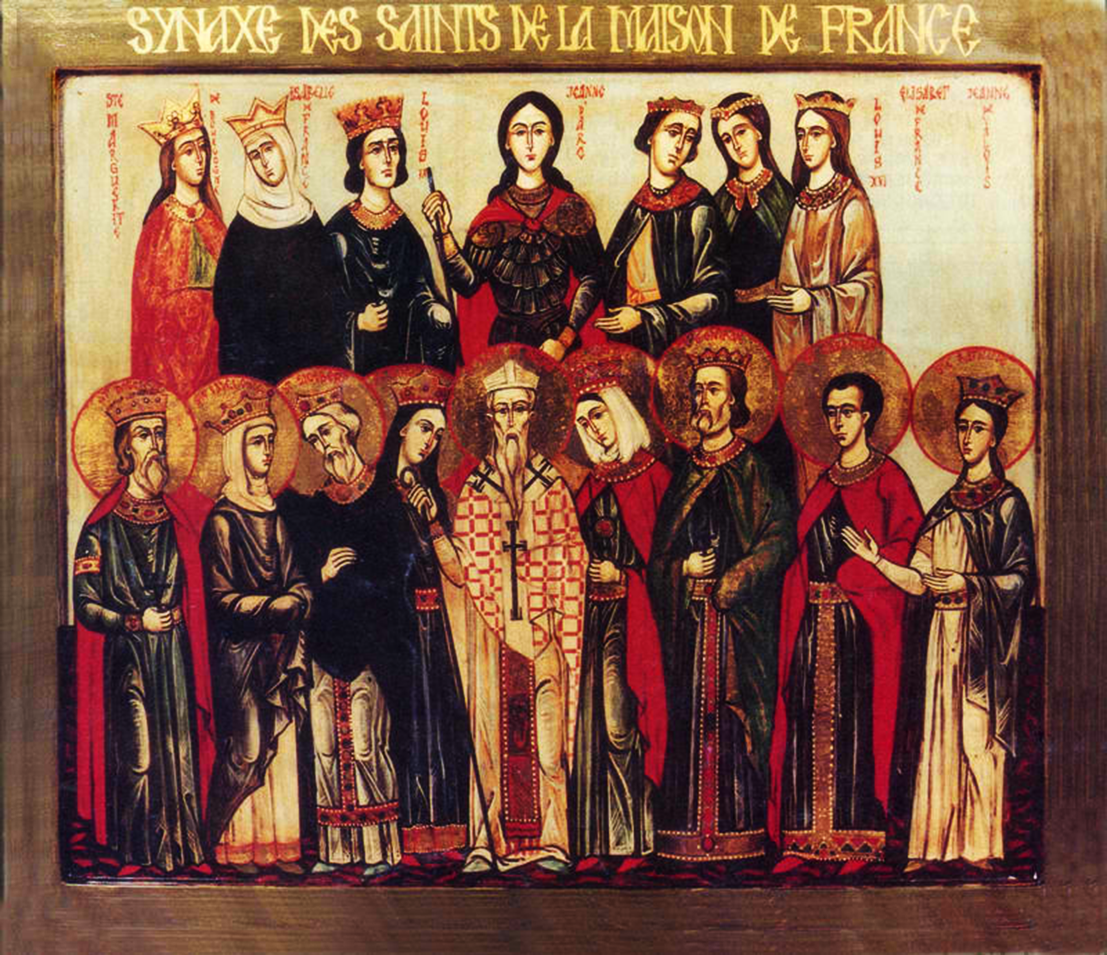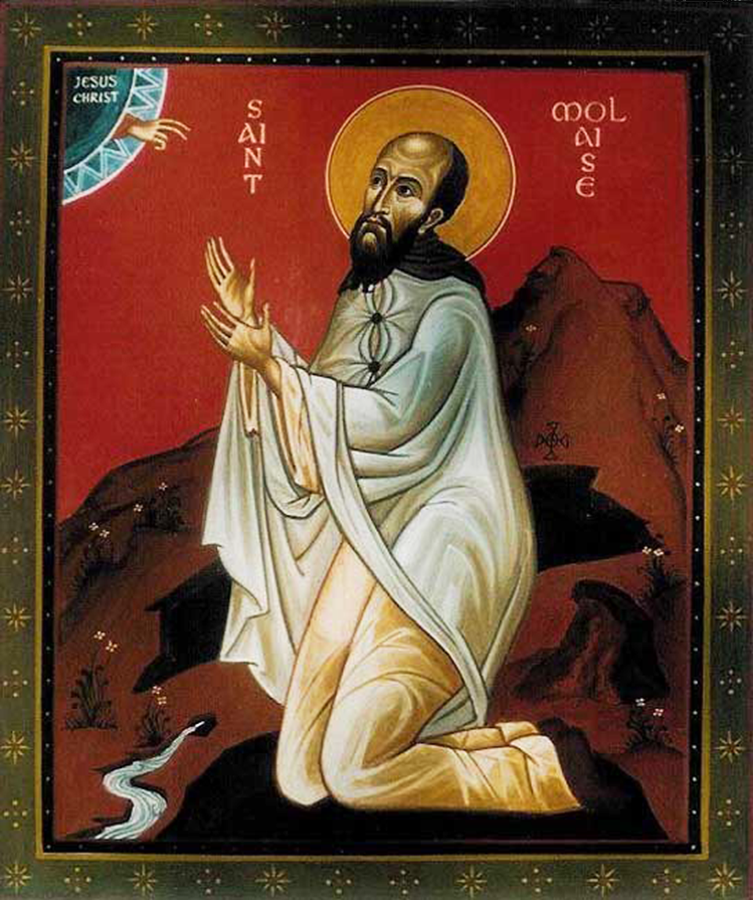Orthodox Saints of the Pre-Schism See of Rome

18th April
AGIA (AIA, AUSTREGILDIS, AYE), the wife of St. Hidulf of Hainaut (23rd June). She and St. Hidulf separated by mutual consent to enter monastic life. St. Agia entered an abbey in Mons (Hainaut, Belgium) where she lived until her repose circa 714.
APOLLONIUS the APOLOGIST, a Roman senator and scholar who, after studies in pagan philosophy as well as the Scriptures converted to Christianity. Though during the time in which St. Apollonius flourished Christians were relatively free from persecution, when one of his servants denounced St. Apollonius to the authorities. St. Apollonius was then brought before a court which gave him the option of either renouncing Christianity or death, St. Apollonius refused to apostatise and was beheaded circa 190. Eusebius of Caesarea (†339) in his Ecclesiastical History, and St. Jerome (30th September) in De Viris Illustribus have written of St. Apollonius and his trial.
BITHEUS and GENOCUS, (Sixth Century), Two British monks, who accompanied St. Finian of Clonard (12th December) to Ireland where they gained reputations for great sanctity and eventually reposed. There is no further information on either saint extant.
CALOCERUS, (Date Uncertain), an officer in the army of the Emperor Hadrian (r. 117–138) who was martyred in Brescia, Lombardy (northern Italy) for converting to Christianity.
COGITOSUS, (Seventh or Eighth Century), though little is known of this saint, it appears he was a monk at St. Bridig's monastery in Co. Kildare, Ireland. The Vita Sanctae Brigitae (Brigidae), generally thought to be the oldest extant Life of St. Brigid (1st February) is generally ascribed to St. Cogitosus. Some sources contend that he may have been related to St. Brigid as well, though there is insufficient evidence to support this assertion.
COREBUS, according to pious legend St. Corebus was a prefect in Messina, Sicily who was converted to Christ by the witness of St. Eleutherius (26th May). He was martyred in 138, a victim of the persecutions during the reign of Emperor Hadrian (r. 117–138).
DEICOLA (DICUL), A native of Ireland, St. Deicola went to England where he worked to enlighten the people of Norfolk and Sussex. The village of Dickleburgh in South Norfolk may be named after him. He reposed towards the end of the seventh century.
ELEUTHERIUS and ANTHIA, St. Eleutherius, Bishop of Illyria in present-day Croatia, his mother Anthia, and eleven others, whose name are no longer known, were martyred, possibly for their successful evangelisation, in Illyria circa 138, in the persecutions during the reign of Emperor Hadrian (r. 117–138).
LASERIAN (MOLAISSE) of LEIGHLIN, A nephew of St. Blane (10th August), St. Laserian is said to have been ordained to the priesthood in Rome by Pope St. Gregory the Dialogist (3rd September). Upon returning to Ireland he founded the monastery and Bishopric of Leighlin, Co. Carlow, serving as the first Bishop-Abbot. Soon afterwards he was appointed Papal Legate to Ireland, and, in that role, strenuously advocated for the Roman Practices to prevail, especially with regards to Easter (vide Paschal Controversy). St. Laserian is also venerated as the Patron of the Roman Catholic Diocese of Leighlin.
PERFECTUS (PERFECTO), a priest in Córdoba who was martyred by Muslims for expressing the opinion that Jesus was the Son of God and our Saviour, while Mohammed was a false prophet. Following his arrest and conviction for blasphemy, St. Perfectus was executed on Easter Sunday 851.
WICTERP (WIGBERT, WIHO, WICHO), Abbot of Ellwangen Abbey (Kloster Ellwangen) in Swabia (present-day Ellwangen an der Jagst, Baden-Württemberg, Germany). He also founded eminent monasteries at Füssen, Wessobrunn, and Kempten all in Bavaria. St. Wicterp was consecrated the twelfth Bishop of Augsburg, Bavaria (Germany) circa 738, serving until his repose in 749.
Prior to the Schism the Patriarchate of Rome was Orthodox, and fully in communion with the Orthodox Church. As Saint John of Shanghai and San Francisco +1966 said “The West was Orthodox for a thousand years, and her venerable Liturgy is far older than any of her heresies”.
Details of British Saints excerpted from Orthodox Saints of the British Isles.
Details of continental saints from these sources.
In many cases there are several spelling versions of the names of saints from the British Isles. I use the Oxford Dictionary of National Biography version as the primary version with the more prevalent version in parenthesis e.g. Ceadda (Chad) of Lichfield.

